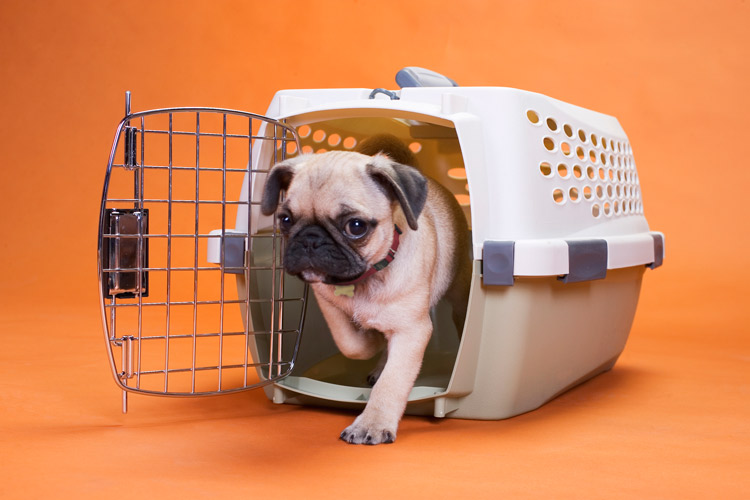
Although many owners believe that all Pit bulls are aggressive, there are other breeds that can be more aggressive than Pit bulls. Some are gentle, and some are reactive. German shepherds and Rottweilers are two of the more aggressive breeds, but they can also be loving and friendly. Listed below are some tips to help you identify which breed is the most aggressive and how to deal with them. Knowing these breeds will allow you to protect your family and yourself against the dangers they pose.
Pit bulls have gentle natures
Pit bulls can be gentle and mean, but that is not what you are thinking. While Pitbulls are very loving to each other and often bump into each other when they're walking, they're also very affectionate toward other pets. Some Pitbulls are even good with household cats and other small animals, but not all. Pitbulls also have prey drive which makes them more loyal to one person.
Although pit bulls don't tend to attack other dogs, it's important to note that their aggression is not directed at humans, so you should keep this in mind if you're planning to adopt one. Some pit bulls are unfriendly with other dogs, but that doesn't necessarily mean that they're not friendly with people. In fact, pit bulls have a very gentle, affectionate personality that's ideal for family pets.
Pit bulls are often misunderstood as aggressive and mean. However, their owners have found that they are loyal and friendly with children. Pit bulls can be great party dogs. They are gentle with children and won't attack them. They are also very entertaining and make great party pets and can be trained by as young as four months. They are excellent at paper training. Pitbulls, despite their reputation as mean dogs, are gentle and will bite only if provoked.
Chihuahuas are reactive
If you're worried about your Chihuahua being aggressive towards other dogs, the first thing to do is observe your puppy. Start by scheduling play dates between the dogs. Don't try to pet one dog while the others are still on their feet. This will confuse your puppy and make him more aggressive. If your puppy does display any aggressive behavior, it's time to take the situation seriously. Take your new dog with you to a park.
Pain can cause aggression in your Chihuahua. Dogs do not communicate in the same manner as humans. Therefore, they can react aggressively when they feel pain. Dogs with painful medical conditions may exhibit pain-elicited aggression. This behavior is also common in older Chihuahuas. Your Chihuahua might be aggressively responding to pain if it's arthritis.
Rottweilers are very aggressive

Rottweilers may seem aggressive to children. Although this breed is playful and easy to socialize with, it should not be allowed to play with small children. Although the breed can seem intimidating, it is not likely to bite or intimidate children. This is an important characteristic of a Rottweiler. Read on to learn more about how to safely interact with a Rottweiler and children.
Rottweilers tend to be calm, but can sometimes be aggressive towards strangers. They weigh between 110 lbs and 50 kg, regardless of how large they are. While most Rottweilers don't have an aggressive nature, they can still be dangerous if not socialized and trained properly. Rottweilers are intelligent and simple to train.
You can choose to have your dog be aggressive towards other people or animals. But you need to be willing to work with them. Rottweilers have a lot of intelligence and are happy to please their owners. Rottweilers can be devoted and loyal dogs. If socialized properly, they can serve as therapy and guide dogs and customs inspectors. Rottweilers, while they are loyal companions, cannot be trusted with loneliness or anxiety.
German shepherds are very aggressive
German Shepherds' aggressive behavior is one of their biggest problems. They chew, growl and bite. German Shepherds should be socialized with other dogs to help reduce their aggressiveness. Aggressiveness can also be due to illness, injuries, tumors, and other conditions. It is important to consult a veterinarian to determine if aggressiveness is due sexual energy. However, owners might have mixed signals which cause their dogs to behave in unpredictable ways.
German Shepherds might have suffered abuse when they were subject to aggression. German Shepherds may have experienced abuse, which could explain why aggression is their default defense. If your German Shepherd barks at the bell, it may be a sign that he is exhibiting aggression. A lack of socialization could also be a reason for aggression. It's important to remember that puppies form associations with humans during their first six months. A German Shepherd is best suited for guarding roles, and it is possible to train this breed without causing any harm to other animals or people.
Despite their protective nature, German Shepherds can be aggressive toward other dogs if they feel threatened. Good socialization is essential for the success of a German Shepherd in the world. Introducing your dog to as many different people as possible will help them to develop a positive relationship with other dogs. Remember that your German Shepherd needs protection from other dogs and people. Your dog should be socialized with other dogs as early as possible.
Wolf hybrids are aggressive
Common misconceptions about wolf mix dogs are that they are more aggressive then other dogs. These dogs may display the same aggressive tendencies as other dogs. They are a mixture of wolf and domestic dogs. An wolf hybrid can also exhibit increased fear responses. These can make a hybrid more aggressive, but they are often inevitable. These problems can be avoided by keeping the hybrid away from humans.
A wolf-dog hybrid may encounter a small child. This is a common example. Young wolves may test their rank and could endanger the child. Lower-ranking wolves will often defend the position and act aggressively towards children and other humans. If a child is near the hybrid, the dog may attack the child.

Hybrid dogs exhibit more predatory behavior when breeding than normal dogs. Hybrid dogs mature much earlier than other dogs due to their predatory nature. Between 18 months old and two years, their temperaments and behaviors will change. By this age, hybrids with high wolf genetics will become extremely aggressive and may have severe shyness problems. If you notice a marked change in the behavior of a hybrid at this age, it is possible that the dog and wolf genes were combined.
Avoid eye contact with aggressive dogs
Avoid eye contact when meeting aggressive dogs. It may seem easy to avoid eye contact with aggressive dogs, but there are important things to remember. Dogs see eye contact as dangerous and avoid it. This behavior can be a result of a lack or socialization. A more serious problem is aggressive dogs that may bite, bark, or make eye contact with strangers. You might consider training your dog not to make eye contact with you dog if you are afraid of approaching them.
Training a dog to avoid eye contact is important, but not all dogs respond to the same commands. It is important to remember that every dog is different. A dog may exhibit aggression during eye contact with a person or dog that is unfamiliar with them. You should immediately contact a veterinarian if your dog displays aggressive behavior when they make eye contact with you. Even if your dog has never bitten you in the past, it is possible that he/she is fearful or stressed and will act aggressively.
Avoid eye contact with aggressive dogs when they stare at you. This can be a sign of aggression. While staring at a stranger may make you feel better, a dog may perceive it as a threat and react aggressively. You can also avoid eye contact with aggressive dogs if you observe your dog avoiding the gaze. Don't stare at your dog while holding it still. The dog may be trying to protect a treat from the other dogs, so get off your back.
Nothing
Dogs can become more aggressive if you don't do anything when they are being mean. It is better to feed your pet while they are distracted. You won't encourage your dog to be aggressive. Once you've mastered the art of doing nothing, you can even train your dog to stop attacking other people. It's a win-win scenario.
FAQ
What are some things to consider before purchasing an exotic pet
There are several things to consider before you buy an exotic pet. First, decide if you intend to keep the pet as a pet or sell it. If you want to keep it as an animal pet, you need to ensure that there is enough space. You should also know how much you plan to spend on the animal's care. It's not easy to care about an animal. But it's well worth it.
If you're looking to sell the animal then you should find someone willing and able to buy it. You should ensure that the person who buys your animal is knowledgeable about how to care for animals. Make sure you don't feed your pet too much. This could lead later to health problems.
You need to thoroughly research exotic pets before buying them. There are many websites that can give information about different species of pets. You should be careful not to fall for any scams.
What age is it safe to have a pet as a child?
Children under five should not have pets. Children under five years old should not own cats and dogs.
Most children who have pets are bitten by them. This is particularly true for small dogs.
Also, some breeds of dogs (such as pit bulls) can be extremely aggressive towards other animals.
Even though dogs may appear friendly, this doesn't mean they won't attack other animals.
Make sure your dog is well-trained if it's your decision to buy a dog. You should also supervise your child when she is playing with the dog.
Which is easier to train: cats or dogs?
Both. It all depends upon how you approach training them.
They will learn quicker if you reward them for following the instructions. If you ignore them when you don't like what they do, they will start to ignore you.
There is no right or wrong way to teach your cat or dog. You need to determine the best way of teaching your cat or dog.
What's the best pet?
The best pet is one that you love. There is no single right answer. Everyone has their own opinion as to which pet is the best.
Some believe cats are more intelligent than dogs. Others believe dogs are more loyal, loving, and affectionate. Some argue that birds are the best pet.
No matter which type of pet you decide on, you have to choose what type of personality you want.
A dog is the best choice for someone who is outgoing, friendly, and affectionate. A cat or dog would be the best for you, if you are shy and reserved.
You should also consider the size and layout of your home. If you have a small apartment, you will need a smaller pet. A larger house, on the other hand will require you to have more space.
Don't forget to give your pet lots of love and attention. They must be fed often. They should be taken on walks. They need to be brushed, and cleaned.
All these factors will enable you to select the best pet.
What is pet insurance?
Pet Insurance provides financial protection when your pet is injured or becomes sick. It also covers routine vet care such as vaccinations and spaying/neutering.
It also pays for emergency care if your pet is injured or has an accident.
There are 2 types of pet insurance.
-
Catastrophic – This insurance pays for the medical costs of your cat in case of serious injury.
-
Non-catastrophic: This covers routine vet costs such as microchips and spays/neuters.
Certain companies offer both catastrophic coverage and non-catastrophic. Others offer just one or the other.
These costs are covered by a monthly payment. The amount you spend on your pet’s care will determine the cost.
The price of your insurance depends on which company is chosen. Do your research before purchasing.
Many companies offer discounts for multiple policies.
Transferring an existing pet insurance policy with another company is possible.
If you don't want to purchase pet insurance, you will have to pay all the costs yourself.
There are still ways you can save money. Ask your veterinarian about discounts.
If your pet sees you often, he may discount you.
Instead of spending money on a pet, you could adopt one from an animal shelter.
No matter which type of insurance you choose, it is important to read all the fine print.
This will give you an accurate estimate of the value of your coverage. If you do not understand something, contact your insurer immediately.
What are your considerations when choosing a pet to own?
It is important to decide what kind of lifestyle and activities you would like for your family. Do you have children? How many children do you have? Are they currently over 50? Are there any special dietary requirements?
Do you have allergies? Is there anything you need to know more about your pet
Now, you can think about whether you are looking to find an active companion, quiet lap dog or house-trained cat. Or perhaps a fish tank filled with tropical fish.
If you're considering adopting a puppy, make sure you visit a shelter or rescue group where you can meet the animals and see if you feel comfortable with them.
It is also important to check if the animal was vaccinated against other diseases and rabies.
Finally, ask the owner if he or she will take care of the animal while you go on vacation. This will make it so you don't have worry about leaving your pet home.
You should remember that pets are a part of your family and that you should not adopt them unless you truly love them!
Statistics
- For example, if your policy has a 90% reimbursement rate and you've already met your deductible, your insurer would pay you 90% of the amount you paid the vet, as long as you're still below the coverage limits of your policy. (usnews.com)
- It's among a relatively few companies that provide policies with a full (100%) coverage option, meaning you are not responsible for any co-payment of bills. (money.com)
- A 5% affiliation discount may apply to individuals who belong to select military, law enforcement, and service animal training organizations that have a relationship with Nationwide. (usnews.com)
- In fact, according to ASPCA, first-year expenses can sum up to nearly $2,000. (petplay.com)
- Pet insurance helps pay for your pet's medical care, with many policies covering up to 90 percent of your vet bills. (money.com)
External Links
How To
The best way for a dog to learn where it should go to urinate is by teaching him.
It is important to teach your pet how the toilet works. You should also know how to train your pet if they go outside alone. Here are some tips that will help you teach your dog the correct way to go to the bathroom.
-
It's important to begin training as early as possible. You don't want any injuries during playtime. Start training today!
-
Use food rewards. If you reward your pet after every successful trip, it will bring you better luck.
-
Avoid giving treats to your pet's pee spot. This could cause him to associate the smell of urine with his favorite treat.
-
Before you allow your dog outside, make sure that no other animal is nearby. Dogs who see others relieving themselves may think it's normal behavior.
-
Be patient. It might take your puppy a little longer to learn than an adult.
-
Before your dog can use the bathroom, let it sniff everything. She will be more successful if she is able to smell the toilet before entering.
-
Don't let your dog stand next to the toilet while you're taking care of business. This could cause confusion.
-
Wipe down the toilet seat and floor after you're done. These areas will serve as reminders of what you need to do next.
-
Clean up any messes immediately. If your dog has an accident, clean it up quickly and thoroughly. You might have to give him another chance at relieving himself.